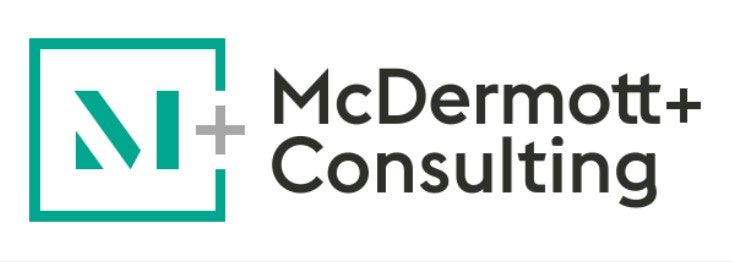THIS WEEK’S DOSE
- House Ways & Means Committee Holds Markup of Six Healthcare Bills. The committee advanced six bills focused on issues related to telehealth, rural health and access to care.
- Senate Finance Committee Releases Prescription Drug Shortage Discussion Draft. The discussion draft includes proposals to address persistent economic problems leading to shortages of generic medicines.
- Senate HELP Committee Ranking Member Releases NIH White Paper. Senator Cassidy’s (R-LA) white paper details proposals to overhaul the National Institutes of Health (NIH).
- Senate Budget Committee Holds Hearing on Administrative Burdens in Healthcare. The hearing examined solutions to reduce paperwork and cut costs to alleviate healthcare administrative burdens.
- Medicare Board of Trustees Releases Annual Report to Congress. The report finds that the solvency for the Medicare hospital trust fund can extend five years later than previously reported.
- CMS Issues Proposed Rule Creating a New Kidney Transplant Mandatory Model. The rule would create a mandatory Medicare payment model to test whether performance-based incentive payments paid to or owed by kidney transplant hospitals increase access to kidney transplants.
CONGRESS
House Ways & Means Committee Marks Up Telehealth and More. The bills considered in the markup support expanding access to telehealth as well as access to healthcare in rural areas. All six bills passed out of the committee, but only the telehealth bill passed with bipartisan support. More information on amendments and vote outcomes can be found here. One pagers on each of the bills can be found here.
Below is a brief review of each bill and the vote count:
- H.R. 8261, the Preserving Telehealth, Hospital, and Ambulance Access Act, would extend Medicare telehealth flexibilities through 2026 and hospital at home services through 2029. The bill would also extend the low-volume hospital payment adjustment and the Medicare-Dependent Hospital program through September 30, 2025. The bill would also extend essential Medicare add-on payments for urban, rural and super-rural areas to preserve access to crucial emergency ambulance services.
- Advanced by a unanimous vote of 41 yeas and 0 nays.
- H.R. 7931, the Preserving Emergency Access in Key Sites (PEAKS) Act, would clarify that Medicare will pay the critical access hospital (CAH) rate for CAH-owned ambulances located within a 15-mile drive in mountainous areas or areas accessible only by secondary roads.
- Advanced by a party-line vote of 24 yeas and 18 nays, with Democrats raising concerns that it was opposed by firefighters and would destabilize the majority of grand ambulance agencies in rural areas because the protection only extends to CAH-owned ambulances.
- H.R. 8245, the Rural Hospital Stabilization Act, would authorize stabilization grants to rural hospitals and technical assistance providers administered by the Federal Office of Rural Health Policy.
- Advanced by a party-line vote of 24 yeas and 18 nays, with Democrats raising concerns that the bill fails to include help for safety-net hospitals that are in underserved, non-rural areas.
- H.R. 8244, the Ensuring Seniors’ Access to Quality Care Act, would allow nursing homes to continue operating their certified nurse aide training program if they incur fines above a certain amount, so long as the fines are issued for reasons unrelated to direct resident care.
- Advanced by a party-line vote of 25 yeas and 18 nays, with Democrats raising serious concerns with permitting underperforming facilities to continue training.
- H.R. 8235, the Rural Physician Workforce Preservation Act, would ensure that 10% of the 1,200 recently approved Medicare GME slots dedicated to rural hospitals go to hospitals either located in a rural census tract of a metropolitan statistical area or located in an area designated by state law as rural.
- Advanced by a party-line vote of 24 yeas and 16 nays, with Democrats raising concerns that the redefining of “rural” in the bill could have negative implications for rural hospitals.
- H.R. 8246, the Second Chances for Rural Hospitals Act, would move back the eligibility date for a closed hospital to convert to a rural emergency hospital (REH) from December 27, 2020, to January 1, 2014, allowing previously closed rural hospitals to convert to an REH and bring back services to rural and underserved communities.
- Advanced by a party-line vote of 24 yeas and 16 nays, with Democrats raising concerns that going backward like this could allow rural emergency hospitals to open close to full-service hospitals that may now be located in the area and that it will negatively impact those facilities.
Senate Finance Committee Chair and Ranking Member Release Prescription Drug Shortage Discussion Draft. The discussion draft put forth by Chair Wyden (D-OR) and Ranking Member Crapo (R-ID) would establish a new Medicare Drug Shortage Prevention and Mitigation Program. Beginning in 2027, this voluntary program would make payment incentives available to hospitals, physician practices, and other Medicare providers of services or suppliers that utilize, through wholesalers, GPOs, nonprofits, other entities or directly, certain contacting and purchasing practices to acquire genetic sterile injectables and infused medications, with the potential for expansion to additional multiple-source drugs over time.
The proposal would also make a change to the Medicaid Drug Rebate Program enabling reductions or waivers to the inflation rebate for certain generic drugs in the event of shortage risk, modeled on current law under Medicare.
A press release on the discussion draft can be found here. A one-page summary of the discussion draft can be found here. A section-by-section summary can be found here.
Comments on the proposal may be submitted to DrugShortages@finance.senate.gov no later than June 6, 2024.
Senate Budget Committee Holds Hearing on Administrative Burdens in Healthcare. The hearing discussed solutions to reduce administrative burden in healthcare, including addressing burdens tied to prior authorization. Senators and witnesses also agreed that quality metrics need to be restructured to eliminate arbitrary metrics. Witnesses and members raised concerns about the large burden placed on physicians to complete paperwork and called on using artificial intelligence (AI) to alleviate this burden. Members noted that cutting down waste, abuse and fraud in the Medicare program is essential to alleviating administrative costs.
Senate HELP Committee Ranking Member Releases NIH White Paper. Sen. Cassidy, Ranking Member of the Senate Health, Education, Labor & Pensions (HELP) Committee released a white paper to improve the National Institutes of Health (NIH). The white paper follows a request for information (RFI) he issued from stakeholders in September 2023 seeking feedback on NIH’s current activities and statutory framework.
The white paper includes solutions to maximize the effectiveness of current NIH funding, sustain the United States’ competitive advantage in biomedical research and restore public trust in science. The report also recommends holding NIH accountable to carry out its grants management responsibilities while balancing more effective oversight with reducing unnecessary burden on researchers. Read the Ranking Member’s press release here.
ADMINISTRATION
Medicare Board of Trustees Releases Annual Report to Congress. The report includes information on the financial operations and actuarial status of Medicare – including the Hospital Insurance (HI) program (Medicare Part A) and the Supplementary Medical Insurance (SMI) program (Medicare Part B and prescription drug coverage).
Notably, the HI Trust Fund will be able to pay scheduled benefits until 2036, five years later than projected last year. According to the report, this is due to economic and job growth along with lower-than-expected healthcare spending. After 2036, that fund’s reserves will become depleted and continuing program income will be sufficient to pay 89% of total scheduled benefits. The report notes that over the last 35 years the total number of Medicare beneficiaries approximately doubled, and the Trustees expect the total to increase by 39% over approximately the next 35 years. While beneficiaries in the program are projected to increase, the number of workers paying into the trust fund is projected to decrease.
The report found that, in 2023, Medicare covered 66.7 million people: 59.1 million people aged 65 and older, and 7.6 million disabled people. About 48% of these beneficiaries chose to enroll in Part C private health plans that contract with Medicare to provide Part A and Part B health services (Medicare Advantage). Total Medicare expenditures, according to the Centers for Medicare & Medicaid Services’s (CMS) report, were $1,037 billion in 2023. The Trustees project that expenditures will increase in future years at a faster pace than either aggregate workers’ earnings or the economy overall and that, as a percentage of GDP, spending will increase from 3.8% in 2023 to 6.2% by 2098 – substantially increasing the strain on the nation’s workers, the economy, Medicare beneficiaries and the federal budget.
A press release is available here and a fact sheet is available here.
CMS Issues Proposed Rule Creating a New Kidney Transplant Mandatory Model. CMS issued a proposed rule titled, “Alternative Payment Model Updates and the Increasing Organ Transplant Access (IOTA) Model,” which would create a mandatory Medicare payment model to test whether performance-based incentive payments paid to or owed by participating kidney transplant hospitals increase access to kidney transplants for patients with end-stage renal disease while preserving or enhancing the quality of care and reducing Medicare expenditures.
The proposed mandatory model would last for six years, from January 1, 2025, through December 31, 2030. CMS would randomly select approximately half of the donation service areas (DSAs), and all eligible kidney transplant hospitals within the chosen DSAs would be required to participate. The other half of the DSAs would serve as the comparison group. CMS would then measure and assess the participating hospitals’ performance during each performance year (PY) across three domains:
- Achievement (60 points): The overall number of kidney transplants performed during a PY, relative to a participant-specific target.
- Efficiency (20 points): The kidney organ offer acceptance rates relative to the national rate.
- Quality (20 points): The quality of care across proposed metrics, which include the post-transplant composite graft survival rate, CollaboRATE Shared Decision-Making Score, Colorectal Cancer Screening, and Three-Item Care Transition Measure.
The final performance score, compiled across the three domains, would determine the corresponding performance-based payment that would be paid to CMS or the participating hospital. At the end of each PY, an upside risk payment would be paid to each participating hospital that scores above 60 points, and a downside risk payment would be owed by any participating hospital that scores below 40 points. The downside risk payment is not proposed to start until PY2.
A CMS press release can be found here and fact sheet can be found here. Our team is continuing to review the proposed rule and plans to write a more in-depth summary in the coming days.
QUICK HITS
- HHS Office on Women’s Health Announces Final Phase Winners for Hypertension Innovator Award Competition. The winners announced by the US Department of Health and Human Services (HHS) Office on Women’s Health can be found here. The national competition was created to identify and reward innovative programs that ensure that women with hypertension during pregnancy and/or postpartum receive appropriate monitoring and follow-up.
- HHS Announces Results of COVID-19 Vaccination Public Education Campaign. HHS announced that its COVID-19 Vaccination Public Education Campaign, We Can Do This, resulted in an estimated $731.9 billion in societal benefits due to averted illness and related costs, resulting in a nearly $90 return in societal benefits for every $1 spent, according to research published today in the American Journal of Preventive Medicine.
- CMS Announces Upcoming ACO PC Flex Model Webinar. CMS announced it will host a webinar, in early June, providing an application overview for the Accountable Care Organization (ACO) Primary Care (PC) Flex Model. More information on the model and materials from CMS’s last webinar can be found here.
- CMS Updates Mental Health and SUD Content on Medicare.gov. In honor of Mental Health Awareness Month, CMS updated its mental health and substance use disorder (SUD) content on medicare.gov. The content updates are part of CMS’s broader Behavior Health Strategy and will make it easier for users to access mental health and substance use disorder information.
- DOJ Announces New Healthcare Task Force to Tackle Competition Issues in Healthcare Markets. The US Department of Justice (DOJ) announced the formation of the Antitrust Division’s Task Force on Health Care Monopolies and Collusion (HCMC). The HCMC will guide the division’s enforcement strategy and policy approach in healthcare through policy advocacy, investigations and civil and criminal enforcement in healthcare markets.
- CMS Hosts AHEAD Model Webinar. The webinar provided an overview of the role of primary care in the Advancing All-Payer Health Equity Approaches and Development (AHEAD) Model, including the goals and impact on states and primary care practices. CMS is expected to announce states that were selected for Cohorts 1 and 2 of the model in May 2024.
NEXT WEEK’S DIAGNOSIS
Congress is in session next week, with healthcare activity expected at the committee level, including a Senate Finance Committee hearing on rural health and an anticipated House Energy and Commerce Committee markup that includes telehealth legislation.








 />i
/>i

